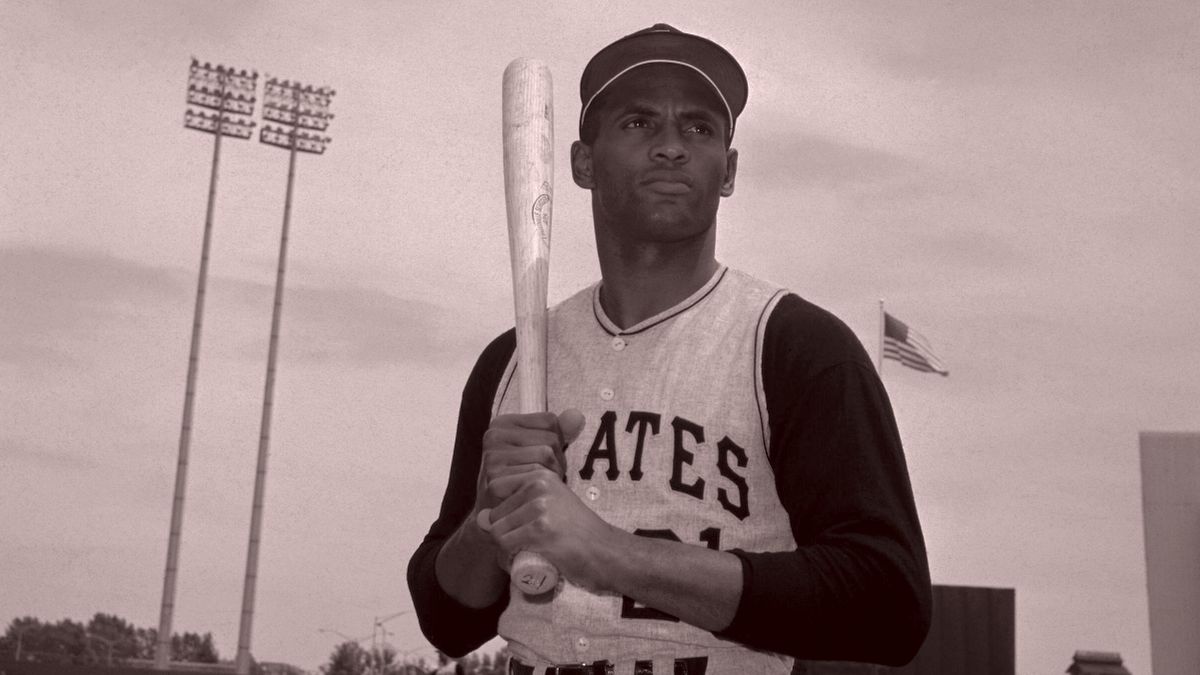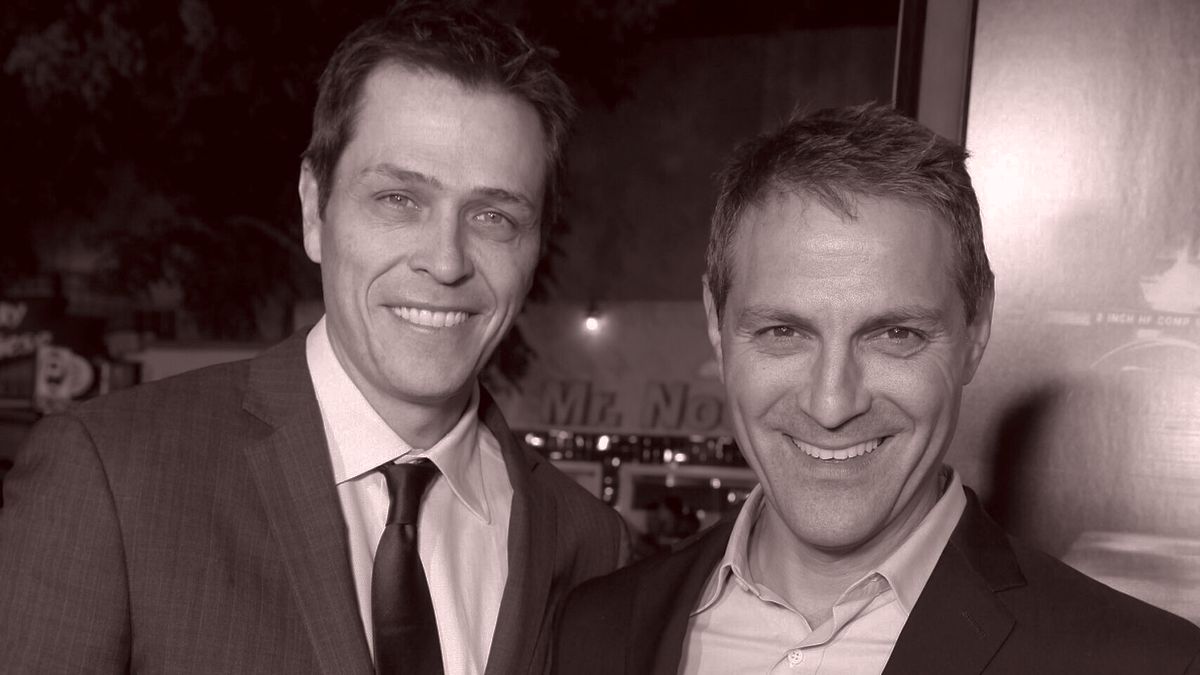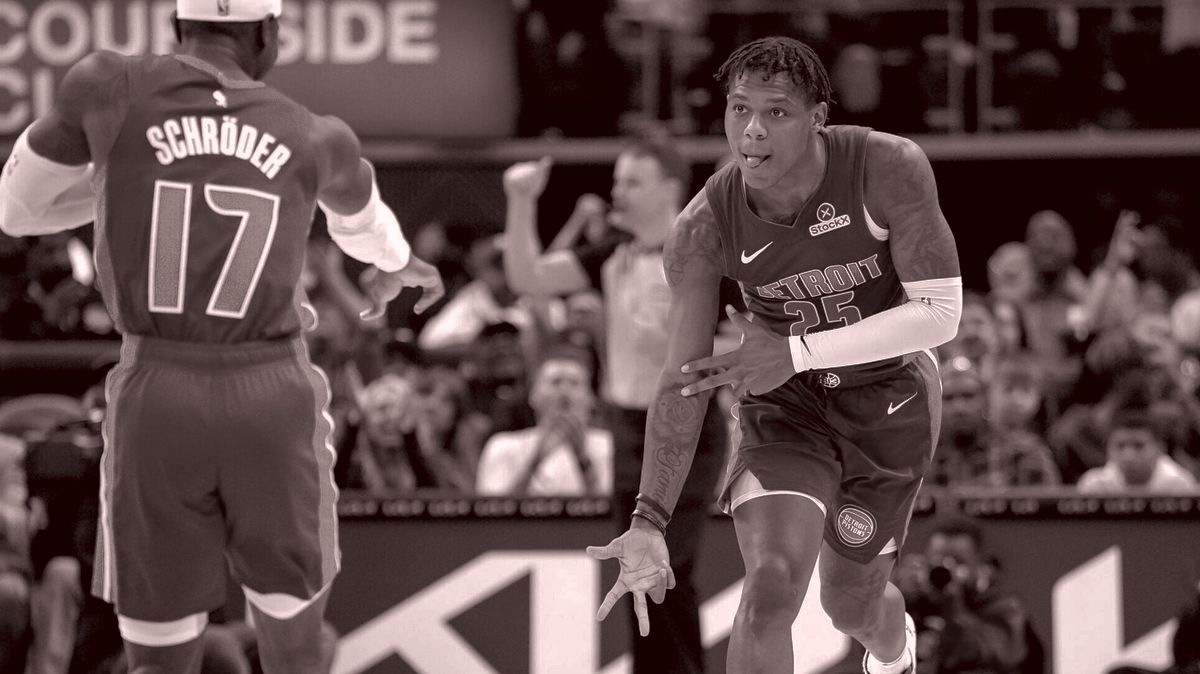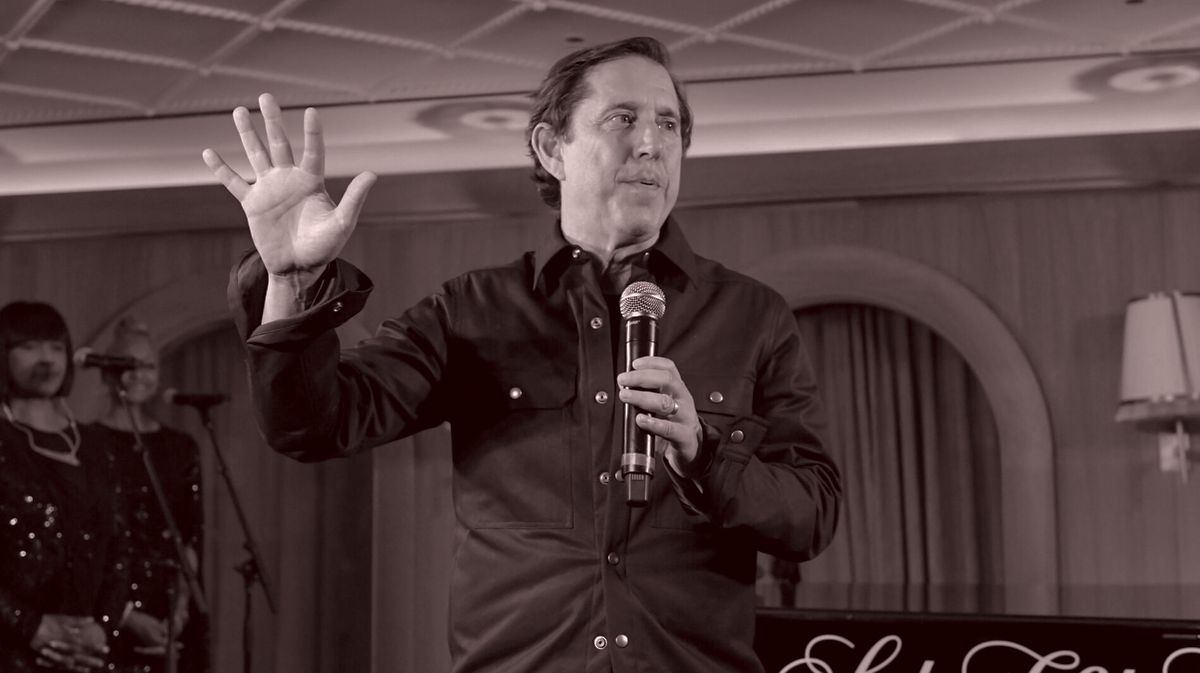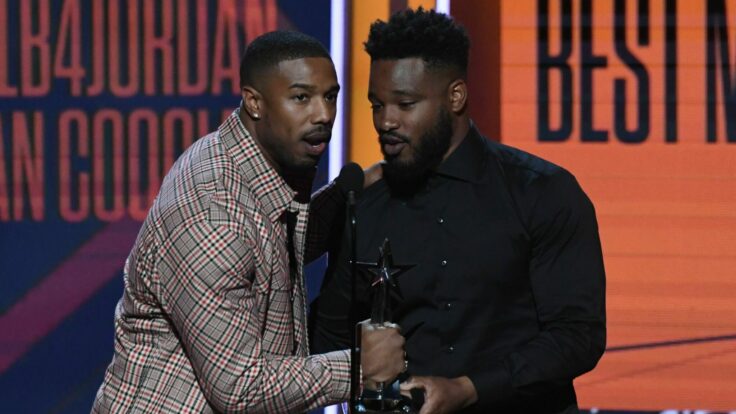Hello and welcome back to WIH+, the Jeffrey Goldberg of the WIH group chat.
Lots of moves lately in the talent agency world, and today Eriq Gardner is here with an interesting story in the niche area of dead celebrity representation. That and updates on Baldoni–Lively, OpenAI, and some legal drama in the world of custom shoes (for real). I’ll hand it over to Eriq…
|
|
|
A MESSAGE FROM OUR SPONSOR
|
|
|

|
Eriq Gardner
|
|
- Did Bryan Freedman
walk into a trap?: The legal saga between Blake Lively and Justin Baldoni—plus the producers, publicists, and reporters caught in the crossfire—is shaping up to be a study in privilege, literally. To wit: Is Lively’s account of Baldoni’s alleged misdeeds, filed with the California Civil Rights Department, covered by the litigation privilege? Is The New York Times, which reported on what Lively told authorities, protected by the fair report privilege? What exactly did Lively confide to her
husband, Ryan Reynolds? Enter marital privilege. The questions are piling up.
Although we’re a long way from answers, it’s perhaps notable that U.S. District Court Judge Lewis Liman recently paused discovery against the Times, finding the publication made a compelling case that its motion to dismiss Baldoni’s libel allegation is likely to succeed. In contrast, Lively’s longtime publicist Leslie Sloane, whom
Baldoni included in his $400 million defamation suit against Lively and Reynolds, just learned she will be receiving no such judicial grace—the court declined to extend the same pause on her behalf.
Meanwhile, Lively’s motion to dismiss Baldoni’s suit now leans on California’s brand-new #MeToo privilege, which shields good-faith communications about sexual harassment. If she prevails under this law, Lively will be entitled to treble damages for any harm suffered. That, in turn, raises a
potentially costly tactical question for Baldoni: Was it a misstep to have the case evaluated under California law? Lively filed in New York, but the case is now being litigated through a California lens—at Baldoni’s insistence.
Did Bryan Freedman walk into a trap? When I asked Baldoni’s attorney, he waved off the suggestion. The key, Freedman told me, will be intent: Did Lively speak to the Times with malice? If so, the shield doesn’t apply. And more
importantly, Freedman added, can she prove that sexual harassment actually occurred on the set of It Ends With Us? As they say, truth is an absolute privilege.
- Nike: Just… don’t do it: A provocative intellectual property drama is playing out in New York federal court between Nike and Dominic Ciambrone, a.k.a. “The Shoe Surgeon,” who has a thriving business customizing sneakers for celebrities and high-end collectors.
Ciambrone’s creations include the Air Jordan 4s that Usher wore at the 2024 Super Bowl, and LeBron James’s crocodile skin, 24-karat gold-coated LeBron 15s to celebrate the Lakers star passing 30,000 points. He has also customized kicks for Justin Bieber and Jake Paul, among many others.
Last July, Nike filed a trademark lawsuit against Ciambrone, accusing him of manufacturing “counterfeit” shoes “from scratch.” Ciambrone
fired back with a defamation claim, pointing out that Nike had previously supported his work, and even collaborated with him. He asserts that Nike’s true goal is to pressure him into training the shoe company’s design team so that Nike can muscle into the sneaker-customization business itself.
On Friday, Nike’s lawyers moved to dismiss Ciambrone’s claim, echoing the legal privilege arguments surfacing in the Lively-Baldoni brawl. In short, Nike argues that the intention of its suit
against Ciambrone was not solely to defame him, meaning its use of “counterfeit” is protected, and not actionable. Those interested in the finer points of legal sparring can dive into the cross-complaint and dismissal brief—bonus
photos of extremely cool shoes included.
- Meta whistleblower unsilenced: Maybe it’s not a surprise that our Trump-era outrage culture has upped the perceived and actual value of being “censored.” Just ask Sarah Wynn-Williams, the former Facebook public policy executive whose memoir, Careless People, immediately shot to the top of The New York Times’s nonfiction bestsellers list after an
arbitrator issued a gag order, at Meta’s behest, citing the N.D.A. that Wynn-Williams signed when she was fired in 2017. The ruling prevents her from doing any interviews, touring, or publicity for the book. But she hasn’t been silenced entirely.
In fact, Wynn-Williams is about to be heard under oath. In an ongoing multidistrict class action over whether social media platforms are harming adolescents, a federal judge has approved a deposition of Wynn-Williams regarding claims she made in
the book, such as allegations that Meta provided advertisers with tools to target teens based on their emotional state.
Meta is calling this deposition request a publicity stunt to chase headlines and push a false narrative. But Magistrate Judge Peter Kang disagreed. The deposition is moving forward, though an appeal may be in the cards.
- Open season on OpenAI: OpenAI is getting buried under a growing pile of copyright lawsuits
filed by authors, news outlets, and other creators, and on Thursday, a judicial panel in North Carolina will take up a request to consolidate them. The Sam Altman–led company argues that the litigation has become unwieldy, and that too many resources are being drained by duplicative discovery efforts across multiple cases. Centralization is necessary, OpenAI argues, to avoid conflicting rulings on foundational questions, such as whether training A.I. on copyrighted material
qualifies as fair use.
Several of the plaintiffs are opposed to consolidation. They argue that discovery is already well underway in several cases, that the factual and legal questions vary significantly depending on the type of plaintiff, and that fears of inconsistent rulings are overstated.
Even if the cases are consolidated, there’s another fight looming: Where should they land? The choice of venue matters, since different jurisdictions have distinct copyright precedents—some
more favorable to plaintiffs, others to defendants. And, of course, some judges are preferable to others.
In the meantime, discovery continues across the fragmented landscape. Last week, a group of authors, including Michael Chabon, Ta-Nehisi Coates, and Junot Diaz, filed a side case aimed at quashing subpoenas to their literary agents. They’re pushing back against OpenAI’s attempt to probe private communications between authors and
agents on issues such as generative A.I., compensation, and more. The authors argue the subpoenas are overly broad and designed to embarrass, rather than inform.
- Nicklaus rescues his own name: Finally, readers may recall a story I wrote last year about how golf legend Jack Nicklaus signed away the rights to
his own name and likeness—only to later find himself battling a litigious entrepreneur who’d acquired them. Well, he’s just scored the legal equivalent of an eagle.
In a newly issued ruling, New York Supreme Court Justice Joel Cohen has effectively handed Nicklaus back his name. Reversing a preliminary injunction from three years ago, Cohen emphasized that the licensing deal at the heart of the dispute came from Nicklaus’s former company—not from Nicklaus himself. And
crucially, the judge found “no evidence” that Nicklaus had ever granted that company the authority to permanently lock up his name, image, and likeness—even against his own future use.
According to the ruling, the operative documents are an old employment agreement and a noncompete clause—both of which have since expired. Cohen concluded that Nicklaus “is free of restraints to pursue his own business interests as he sees fit,” with the one caveat being the company’s continued rights to
specific trademarks it owns. So, no, he may not be able to take the “Golden Bear” with him—but it’s still a major win for the golfer who still holds the record for Major championships. Read the full ruling here.
|
|
|
Speaking of name, image, and likeness rights, time for this week’s main story…
|
|
|
CMG Worldwide, a once-dominant agency in posthumous talent representation, is entangled
in legal battles with James Dean and Roberto Clemente’s respective estates. But does Hollywood’s long-standing fixation on “life rights” miss the bigger picture?
|
|
|
You’d think that talent representation for the deceased would be a thriving business in
an age where long-dead celebrities can be digitally reanimated to sell cologne, hawk crypto, or star in films they never agreed to. But CMG Worldwide, the once-indomitable agency that spent decades monetizing posthumous fame and lobbying for the laws that made it all possible, is finding that the afterlife isn’t what it used to be.
The Beverly Hills agency is led by Mark Roesler, who built
his career brokering deals for clients that are, to put it delicately, unavailable for comment. But now Roesler’s firm is battling on multiple legal fronts, defending its claim to the posthumous fame of various cultural legends. The latest blow? CMG may have just been fired by James Dean’s estate, which, after decades of cashing checks, has decided it no longer needs its middleman from the Midwest.
CMG insists an agreement with Dean’s estate from the 1980s is still in effect. The estate disagrees. A lawsuit has been quietly filed in New York to determine which party controls the rights to a movie star who’s been dead longer than the average Netflix executive has been alive.
And here’s the wrinkle: This September will mark the 70th anniversary of the Rebel Without a Cause star’s death.
That’s the magic number under California law for when the rights to a dead celebrity’s name and likeness automatically slide into the public domain. So why fight over rights that may soon be freely available? “We’ll still be able to make deals,” Roesler insisted to me. Arthur Barens, the estate’s lawyer, isn’t buying it, and says he already has two offers on the table for an A.I.-generated Dean to star in upcoming projects. According to Barens, the CMG–James Dean Estate
agreement has been stretched past the point of plausibility, the accounting was a mess, and he had to wrestle just to get a copy of the contract. “It’s time to find out what’s really going on,” he said.
|
|
|
A MESSAGE FROM OUR SPONSOR
|
|
|
Roesler, ever the agent, seems determined to go down swinging. After all, CMG
prevailed over Warner Bros. in a court fight for James Dean’s endorsement rights, and has weathered squabbles with the heirs of Jackie Robinson and others. “There were no issues until Arthur entered the picture,” Roesler told me. He claims Barens has been trying to poach the life rights of dead celebrities for a
competitive outfit called Renaissance Licensing.
|
When it comes to fame, the entertainment industry has always behaved a little oddly.
Take biopics, for instance. Contrary to what half the industry seems to believe, you don’t need a celebrity’s permission to tell their life story. The First Amendment takes care of that—as has been confirmed, clarified, and reiterated by the courts. But this is Hollywood, a place where lawsuits hang in the air like smog, and where possessing some vaguely defined
“life rights” is treated like a golden ticket. So, the deals get made anyway, and people get paid.
Still, nothing quite prepared me for the Roberto Clemente debacle—a farcical, if instructive, clash over who owned the rights to tell the story of the Puerto Rican Hall of Fame ballplayer, who died in a 1972 plane crash while delivering relief supplies to Nicaraguan earthquake victims.
Producer Jonah Hirsch, whose previous projects include a virtual-reality version of the Wright brothers’ pioneering 1903 airplane flight, says he bought Clemente’s life rights from CMG in 2023. But was CMG actually authorized to option the rights? A decade earlier, the Clemente family had signed a $200,000 deal to sell the rights to Legendary Pictures, the studio
behind 42, the Jackie Robinson biopic starring the late Chadwick Boseman as Robinson and Harrison Ford in a fat suit as Branch Rickey. The timeline is hazy, but it seems CMG assured Hirsch that Legendary no longer owned Clemente’s life rights because the studio had missed a $50,000 final payment to the estate, and the rights had reverted to CMG.
Legendary,
however, believed it still owned the rights, which was made clear when Legendary sold those rights, in 2022, to producers making a new Clemente biopic. The buyer was Teton Ridge Entertainment, whose parentco, TWG Global, is co-chaired by Mark Walter and Thomas Tull—the latter of whom was formerly Legendary’s C.E.O.
Hirsch is now suing CMG for fraud and concealment,
the Clemente family for breach of contract, and both Legendary and Teton Ridge to determine who, if anyone, actually owns what. A Los Angeles judge held a hearing on Monday to begin untangling the whole mess. CMG is arguing that there was no intent to deceive, and thus, that the agency should be let out of the fraud and concealment case. No dice. The motion was denied, as was a separate motion to dismiss from Teton.
Nagging questions remain. Even if CMG’s error was innocent, how does a firm built on posthumous licensing fail to verify whether it has the right to cut a deal? (Roesler told me it was a mistake, and that he relied on his client’s representations.) Tangentially, can LeBron James and Richard Linklater’s recent Clemente documentary—which
premiered last year at South by Southwest—even be distributed without infringing on these rights? (I hear an announcement is coming on distribution soon.)
The bigger question, of course, is: Why does everyone pretend these life rights are worth so much? Legendary’s deal gives them access to Clemente’s name, image, and biographical details—and the right to fictionalize the whole thing. But you don’t need
any of that to make a dramatized film about a historical figure. That’s what the First Amendment is for. (Legendary declined to comment.)
The real purpose of these deals—and the related court battles—has less to do with legal necessity and more to do with marketing: family blessing, public goodwill, good vibes in general. And perhaps that’s what Hirsch was really after—a nod from the estate,
a clean headline, the illusion of exclusivity. If so, it’s a very expensive way to buy some peace of mind.
Still, if you want to make a Roberto Clemente movie, make a Roberto Clemente movie. And if you want James Dean to star in it, wait until September. No need to wait and see how these cases end—though feel free to consult legal counsel, of course.
|
Thanks Eriq, I’ll see everyone on Thursday evening.
Matt
|
|
|
Puck founding partner Matt Belloni takes you inside the business of Hollywood, using exclusive reporting and insight to
explain the backstories on everything from Marvel movies to the streaming wars.
|
|
|
Puck’s daily art market email, anchored by industry expert Marion Maneker, offers unparalleled access to the mega-auctions
and galleries, elite buyers and sellers, and the power players who run this opaque world. Wall Power also features Julie Brener Davich, a veteran of Christie’s and Sotheby’s, who provides unique insights into how the business really works.
|
|
|
Need help? Review our FAQ page or contact us for assistance. For brand partnerships, email ads@puck.news.
You received this email because you signed up to receive emails from Puck, or as part of your Puck account associated with . To stop receiving this newsletter and/or manage all your email preferences, click here.
|
Puck is published by Heat Media LLC. 107 Greenwich St, New York, NY 10006
|
|
|
|


_01JPAEZQQXHG1GNGA9QRZZKD0G.jpg)
_01JPAEZQD16D4841QMZ3BNQ768.jpg)
